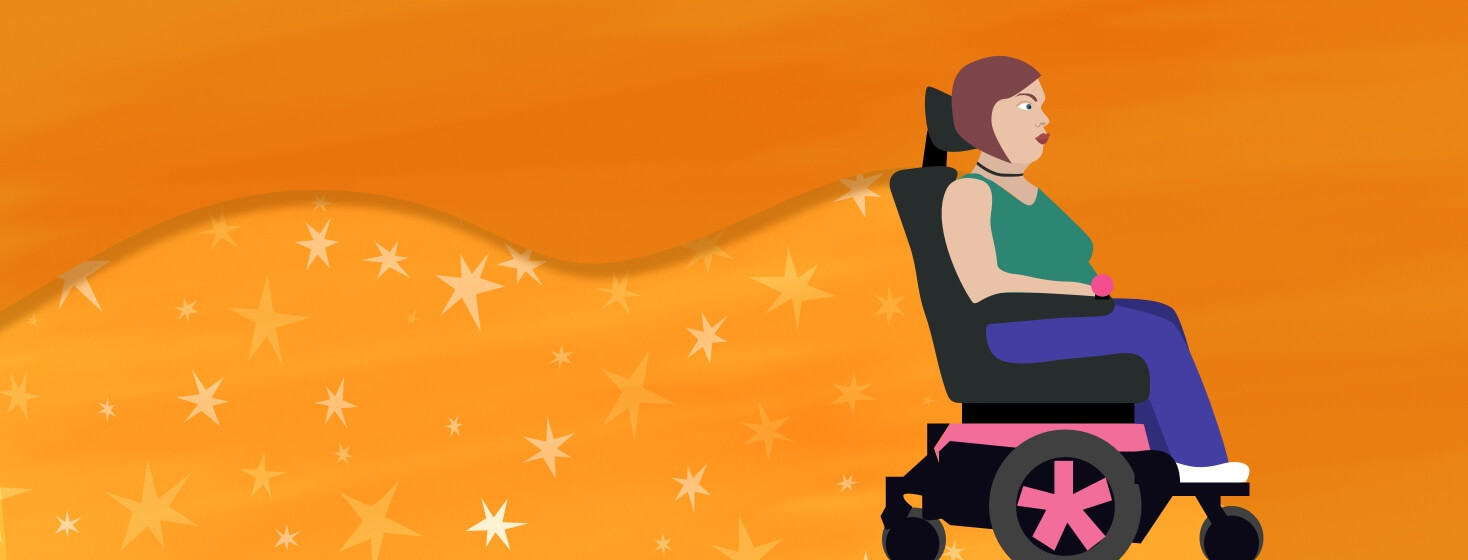My Wheelchair Is My Freedom
Not everyone diagnosed with neuromyelitis optica, or NMO, will need to use a wheelchair. However, some people do become full-time wheelchair users, and some people, like me, might use a wheelchair some of the time.
I am what is known as an ambulatory wheelchair user. That means I can walk a little, but I use my wheelchair for longer distances due to weakness, pain, and fatigue.
Do you have NMO and are considering getting a wheelchair?
Deciding whether or not to get a mobility aid is a very personal decision and should always be made with the advice of your healthcare professional.
They can make sure you have the equipment you need and that it's the right size or fit for you. Using the wrong equipment might even be worse than using none at all, so it's definitely worth getting some professional input.
Here are some common questions I hear from people considering getting a wheelchair.
Question 1: Isn't getting a wheelchair 'giving up'?
Absolutely not. In my eyes, continuing to struggle walking was giving up. Trying to walk everywhere meant I was giving up my precious energy, my social life and completely giving up on adventure. Then in 2021, my wheelchair arrived. I couldn't wait for my first adventure.
Not long after that, I took a trip to a remote Scottish island. It definitely wasn't the most wheelchair-accessible place in the world, but I vividly remember wheeling along a coastal path with my wife and our two dogs. The beauty of the ocean stunned me. The crystal clear turquoise water lapped the shore, seals swam and played in the bay, and the air carried the smell of salt and seaweed. It was at that moment I realized it wouldn't be possible without my wheelchair. I had started living again, and my world had opened up.
Question 2: Isn't it silly getting a wheelchair when I don't need it all the time?
It's not silly at all! Some people use bicycles if they want to go somewhere, but it's a bit far to walk and would take too long. Nobody says anything negative about that, do they? They're just using a tool that helps them go a little further, a little faster. It's the same with a wheelchair.
Question 3: What are the benefits?
Since I started using my wheelchair, I have noticed I have less pain and fatigue. Saving my energy means I can do more, whether that's going out with friends or something boring (but useful) like stacking the dishwasher. I also feel more confident because, in my wheelchair, I can greet people face-on with a smile rather than having to look at my feet when I walk due to balance issues.
Question 4: What are the negatives?
There aren't many negatives! The main issue I've encountered is a lack of wheelchair accessibility in places like shops, cafes, clubs, and more. I recommend calling ahead to check with a venue if they are wheelchair accessible and what facilities they offer. If you can walk a little and get a folding wheelchair, this can help you access some of those not-quite wheelchair-accessible places. If you feel confident enough, you can feed back about accessibility to the business owners. You never know. It might lead to improvements!
Question 5: What will my friends say?
It's natural to wonder what your friends might think. Personally, I found that my friends were supportive, and excited about me being able to get out and about with them. Sometimes people are concerned that you're 'giving up' (see above), but you can let them know how a wheelchair would improve your life to help them understand.
Question 6: Aren't wheelchairs expensive?
Yes, they are, but don't despair - there are a few options that could help with the cost:
- Insurance - if you have health insurance, it may cover some or all of the cost
- Wheelchair Services - in the UK, the National Health Service can provide wheelchairs in some cases. Ask your GP for a referral!
- Grants - search for charities that give grants for medical equipment
- Personal fundraising - online crowdfunding platforms are an option. I know this can feel uncomfortable, but many of your friends, family, and community may be eager to help
Are you considering using a wheelchair? If so, don't forget to discuss it with your health professional. Happy wheeling!

Join the conversation